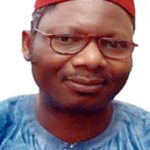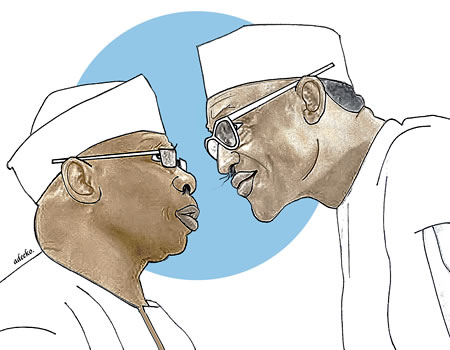
PRESIDENT Muhammadu Buhari and former President Olusegun Obasanjo are veterans of war. They played a key role during the Civil War in Nigeria that claimed more than a million lives. That was before they rose to the rank of Generals in the army. On the political turf, they have equally had to square up for the Presidency under separate political platforms, during which they threw stones at each other. Obasanjo floored Buhari to become president then and even backed two other contenders for the Presidency to triumph over Buhari, but only to give a helping hand to the incumbent president to realise his ambition in 2015.
With the literary bombing of Buhari by Obasanjo through a letter on Tuesday, the Generals have again gone their separate ways. Both have set the political arena on fire through their army of supporters and sympathisers. The mudslinging between the two elephants has thrown up more issues. President Buhari appears to be deferring to the tradition of the military establishment based on hierarchy. So, the war appears being fought through proxies from his end, at least for now. While supporters of Obasanjo have amplified the ‘sins’ of Buhari as contained in the controversial letter, the sympathisers of the president have also been releasing the perceived grave ‘sins and errors’ of Obasanjo while president from 1999 to 2007. After all, those who live a glass house don’t throw stones. But, who will be the first to blink? Is it true that Obasanjo actually hijacked a proposal for a Third Force, or is the former leader working in concert with the initiators of the Nigeria Intervention Movement (NIM)?
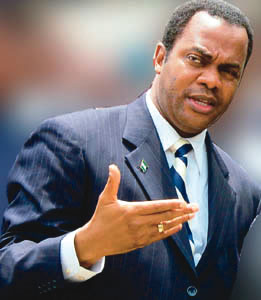
The message and messenger
Government response to the outburst of Obasanjo in his ‘satanic’ letter expressing loss of confidence in the administration of Buhari stirred the bee hornet with vitriolic attack by individuals and groups over perceived official verbiage. Some claim the authority only engaged in chasing shadow rather address the core issues concerning the style of leadership of the incumbent touched by the former president. Allegations of clannishness, narrow view about national politics, threat to national unity, among others contained in the letter, according to some Nigerians, ought to have fully addressed by the government. A statement issued by the authority, they stated, was more of a rehash of what it had placed on the domain for a long time. Elder statesmen like Alhaji Tanko Yakassai said the president might not heed the advice of Obasanjo as contained in the letter. His words: “Obasanjo letter was an expression of disappointment of Buhari’s administration and it summarises the feelings of Nigerians and non-Nigerians. The Buhari that I know would certainly jettison the advice because of his desperation for power; he is after power, and doesn’t see anything else. Buhari shares traits with three classes of people that made it difficult for him to see reason. A man looking for power doesn’t need advice; same thing is applied to a man seeking for love, and the one seeking the hand of a woman.”
The view of the Kano-born Second Republic presidential Adviser is a sharp contrary to the position expressed by the government on the advice of the former president, which said it had taken in good faith. The government said it had no reason to believe that Obasanjo had an ulterior motive in issuing the “Special Press Statement,” adding, “We have also taken his admonition in good faith, and we thank him most sincerely for taking time off
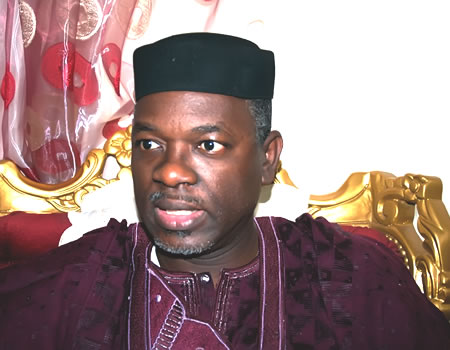
his busy schedule to pen such a long statement.” However, Minister of Information, Alhaji Lai Mohammed, used the opportunity to speak on the touted second term bid of the president: “We believe this issue is a distraction for the President at this time. This is because Mr. President spends every waking hours tackling the enormous challenges facing the nation, most of which were bequeathed to his Administration by successive past Administrations. He is committed to fulfilling the mandate given to him by Nigerians in 2015. And that’s where we are right now.”
The fight back
Checks in the last two weeks revealed meetings in the North by the leaders to consider fresh options before the political divide preparatory to the next elections. Some are calling for a change of paradigm such that a younger politician could take over from Buhari next year after the presidential poll. The frantic search could further serve as a catalyst for the controversial letter by Obasanjo. Meanwhile the raging war between the loyalists of Obasanjo and Buhari have seen them assemble a gamut of perceived unassailable facts concerning the individual stewardship of their godfathers in the past few days. And there are indications that the battle could spread to major political caucuses across the country in the coming weeks. On the raging accusations and counter-accusations, for instance, the foot soldiers of ‘General’ Buhari, in their tirade, noted that Obasanjo “confessed in his statement that you (Buhari) have done well in security and the fight against corruption.” But in another breadth, they queried Obasanjo for allegedly institutionalising corruption through the Ghana-Must-Go phenomenon, just as raised issues on the arrest of a sitting governor in handcuffs whom the former leader sacked from office; soldiers levelling Odi; imposition of a state of emergency in Plateau, as well as cases of the unresolved killings of Chief Bola Ige, Obasanjo’s Minister of Justice; Chief Harry Marshal and all those brilliant Nigerians who dared him then. Other allegations include wasted N16 billion on power projects; third term agenda; ceding of oil-rich Bakassi to Cameroon; introduction of
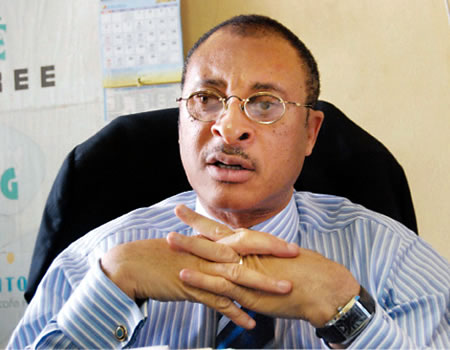
Ghana-Must-Go politics to the National Assembly; demeaning the leadership of the senate; do or die politics with massive rigging and subversion of the will of the people; fought with your vice president, cabinet members, legislators, governors and everybody everyone that disagrees with your ego; hijacking party mechanism; concession Nigeria’s economy to himself and associates at a give-away price under the guise of privatisation.
Controversy over Third Force
At the dawn of the last administration, the orchestration of a Third Force in the political space gained ascendance. Some forces vigorously propounded the theory that the Labour Party and the Accord Party held huge potentials to be in the vanguard because of their strings of victories at some levels of political contest. The narratives on Third Force however changed, following the exit of the then Peoples Democratic Party (PDP) from power and the consequent protracted crisis that almost nailed the party to the cross. Some stalwarts of the party went beyond the cacophonies to float new political parties, which they labelled as the much-trumpeted Third Force. With signs of fresh breadth in the asphyxiated PDP, the promoters of the so-called Third Force soon lost steam turning them into near orphans. Meanwhile, a group under the name, Nigeria Democracy Movement had been busy interrogating issues in the polity with the aim of proffering solutions to fundamental national challenges, promotion and sustenance of democratic ideals. A collection of some of the most brilliant, vibrant, and conscientious Nigerians, the group promotes the spirit of idealism, nationalism. The group parades, former presidential aspirants, elder statesmen, governors, ex-delegates to the 2014 National Conference, serving and former presidential aides and advisers, as well as Labour leaders, proven professionals, ex-top military officers and unrepentant sympathisers of ethnic militant groups and ethnic organisations. Early last year, the group came up with the Nigerian Intervention Movement (NIM), with the primary mission of saving the country from the stranglehold of a visionless
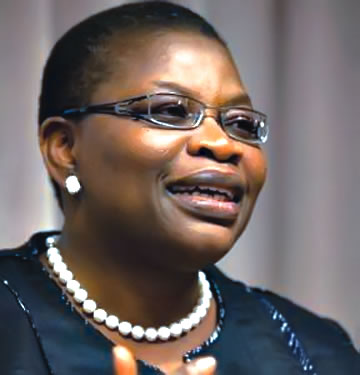
class of the political class in the country. Gradually, the movement adopted the nomenclature of a Third Force, which by the close of 2018, announced its intention to play a key role in the ongoing political transition programme that will crystallise in the 2019 general election. To underscore its seriousness and determination to change the shape and form of the political field, the NIM rolled a 28-point action plan that could lead into its transformation into a political party or go into a merger or alliance preparatory to the general elections.
Elsewhere, a meeting took place in a secret location part of the North. It was convened by three former Nigerian leaders to consider serious national issues. Top on their agenda was on how they could collaborate to prop up a sellable candidate to the electorate in the 2019 presidential election. The meeting almost ended in a deadlock when one of the leaders suggested the name of a former vice president. A source claimed that one of the leaders was at the verge of walking out of the meeting before reason prevailed and the leaders focused their radar on a top military bars. Former President Olusegun Obasanjo, who was said to have been part of that meeting, reportedly convened it. Weeks after, Obasanjo has come up with the “Special Statement,” in which he sold the dummy of a Third Force under the name of Coalition for Nigeria (CN) to work towards stopping Buhari from a second term bid in 2019.
In philosophy, concept and modus operandi, the Third Force being espoused by Obasanjo and NIM promoters seem to differ.
In the preamble to its action plan, the NIM explained that that NIM philosophy is founded on the fundamentals of popular democracy and social justice embedded in greater democratic intervention of government in building a society and polity free from all forms of biases and discriminations based on class, ethnic and religious sentiments, while aspiring to uphold, defend and make justiciable all civil and peoples’ rights/freedoms, covering; citizenship rights, socio economic rights, women’s rights, rights of societal vulnerables; including Persons Living With Disabilities, PLWDs, the rights of indigenous peoples to self-determination, child rights, affirmative action and gender equity as enshrined in the conventions and charters of both the United Nations, and the African Union, a way that these rights can be owned and defended by all Nigerian citizens within the ambience of a truly democratic peoples’ constitution for the good governance, political stability and economic prosperity of Nigeria and all her citizens.”
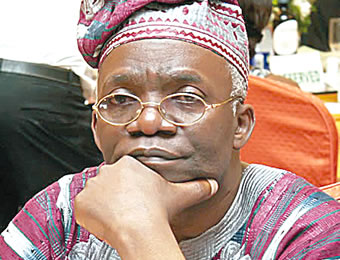
Conversely, Obasanjo contends that such a Movement (Coalition of Nigeria) needed not be a political party for now, but that membership should cut across a broad spectrum of the Nigerian society. “That Movement must be a coalition for democracy, good governance, social and economic well-being and progress. Coalition to salvage and redeem our country. You can count me with such a Movement. Last time, we asked, prayed and worked for change and God granted our request. This time, we must ask, pray and work for change with unity, security and progress. And God will again grant us. Of course, nothing should stop such a Movement from satisfying conditions for fielding candidates for elections. But if at any stage the Movement wishes to metamorphose into candidate-sponsoring Movement for elections, I will bow out of the Movement because I will continue to maintain my non-partisan position. Coalition for Nigeria must have its headquarters in Abuja,” Obasanjo said.
Faces behind NIM
The philosophy championed by Obasanjo on Third Force has caused grimace in the face of some promoters of NIM. Some members are curious about the emerging political inclination of the movement and utterances of the key interim officers and even members. “I believe in this ideology and this is why I joined the movement. I’m a foundation member of PDP on which platform I will contest to be Senator. If we are moving in a direction of creating a new political party, I may not be able to continue my membership and therefore wish to disengage my membership,” one of the promoters stated. This is also against the background of the 28-item action plan of the Movement for elective offices, spanning all offices, including the Presidency in the 2019 election and hopes to hold its national convention in the first week of July this year to elect both the presidential and vice presidential candidates, as well as reaffirm the manifesto and constitution of the movement. The arrowheads of the movement include a Senior
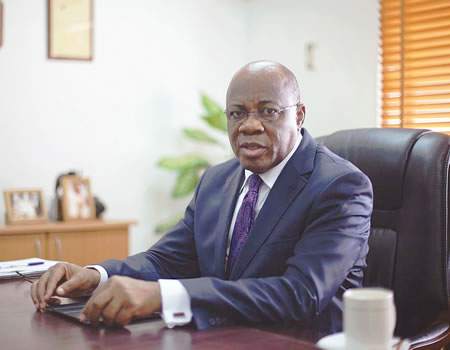
Advocate of Nigeria (SAN), Dr Olisa Agbakoba; Professor Pat Utomi; Dr Oby Ezekwesili, a former governor of Cross River State, Mr Donald Duke; Dr Jhalil Tafawa Balewa, and Colonel Abubakar Umar Dangiwa. The list of the interim national officers of the self-style Third Force both Agbakoba (SAN) and son of the late Nigeria’s prime Minister, Tafawa Balewa, Dr. Jhalil Tafawa Balewa, who are co-chairmen of the group, while Professor Utomi; Rabiu Ishyaku Rabiu; labour leader, Comrade Isah Aremu, and Chief Akin Osuntokun, are deputy chairs. The other officers include Hajia Aisha Aliyu (Woman Leader); Mr Dayo Isreal (Youth Leader); Dr Osagie Obayuwana (Legal Adviser); Hajia Barr Shetu Alfa Ibrahim (Treasurer); Mallam Naseer Kura (Publicity Secretary). Col. Abubakar Umar; Dr Oby Ezekwesili, while Comrade Olawale Okunniyi is the national secretary/director general.
The chairmen of Standing Committees are Mr Donald Duke (Finance Committee); Professor Jibrin Ibrahim (Ideology Commission); Comrade Najeem Usman (Political Commission), and Mallam Tanko Yinusa, who is in charge of Mobilisation. Other interim officers include Mr Wale Ajani (Students and Youth);. Mr Taiwo Akinola (Diaspora Commission); Mr Tony Uranta (Strategy & Engagements); Mallam Shittu Kabir (Contact/Logistics), and Mr Falana (SAN), who is leading the legal team. The progamme of the movement include adoption of NIM Manifesto and Constitution by the General Assembly at a national political summit/formal launch of NIM in Abuja in February 2018; acclamation of the manifesto and Constitution of NIM by state General Assembly and nomination of local government area facilitators at a special state town hall meeting in March 2018. The national convention for nominations/elections into NIM’s National Executive Council and Board of Trustees will hold in the week of April 2018, while the hearing and ruling on elections petitions and appeals by the Appeal committees at all levels is scheduled for April.
But, how far can NIM go? Does it have the resources and structure to go alone or forge an alliance with Obasanjo’s CN or any of other parties reminiscent of the circumstantial birth of the ruling All Progressives Congress (APC)? In the meantime, the Generals and their lieutenants, as well as other foot soldiers could further assail Nigerians with claims, real and imagined, as the battle of Generals rages.
WATCH TOP VIDEOS FROM NIGERIAN TRIBUNE TV
- Relationship Hangout: Public vs Private Proposals – Which Truly Wins in Love?
- “No” Is a Complete Sentence: Why You Should Stop Feeling Guilty
- Relationship Hangout: Friendship Talk 2025 – How to Be a Good Friend & Big Questions on Friendship
- Police Overpower Armed Robbers in Ibadan After Fierce Struggle

